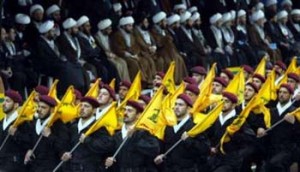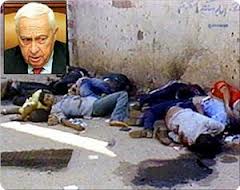 Forget the monumental Gaza withdrawal in 2005.
Forget the monumental Gaza withdrawal in 2005.
Forget his creation of Kadima in 2005 as a new centrist force in Israeli politics.
Forget the infamous 2000 Temple Mount visit that may have sparked the Second Intifada.
As Israel prepares for life after former Prime Minister Ariel Sharon, who died Saturday at age 85 after eight years in a coma, and as the world weighs the legacy of a man who led Israel both in war and in peace, Sharon’s most permanent bequestto the Middle East may be the inadvertent empowerment of Hezbollah, the Shiite Lebanese force that functions in equal parts as armed militia, political party, and social aid group.
It’s not that Sharon intended to create Hezbollah. When, as defense minister, he decided in the summer of 1982 to invade and occupy southern Lebanon and Beirut, he certainly didn’t set out to empower a radical new force in the Middle East. Instead, he saw an opportunity to use Lebanon’s civil war as a means of permanently subduing Yasser Arafat’s Palestinian Liberation Organization.
Shiite militias organized in the 1970s during the early stages of Lebanon’s civil war, and Hezbollah’s founders, including its first leader Abbas al-Musawi and its current leader Hassan Nasrallah, were determined well before Israel’s invasion to recreate Iran’s 1979 Islamic revolution in the Levant. But Sharon’s intervention catalyzed the organization and growth of Hezbollah in the mid-1980s.
By occupying southern Lebanon, a region that even today remains less economically developed than the rest of the country, Israel inadvertently pushed Lebanon’s Shiite population toward the radical leadership that Hezbollah embodied. Had Israel not done so, Nabih Berri, a relative moderate who’s served as the speaker of Lebanon’s parliament since 1992, might today be the dominant spokesman for the Shiite Lebanese population instead of Nasrallah, and Berri’s Amal Movement might be the dominant Shiite Lebanese political force, not Hezbollah. As Labor Israeli prime minister Yitzhak Rabin succinctly put it in the years before his own assassination, Israel’s 1982 occupation “let the genie out of the bottle.” Israel’s invasion spawned an 18-year occupation that allowed Hezbollah to transcend its role representing the Shiite Lebanese community into a force fighting for the sovereignty of the Lebanese state, cheered by Israel’s enemies from Damascus to Tehran.
 Sharon’s notorious role in the 1982 Sabra and Shatila massacre, even today, attracts significantly greater attention—and it was the subject of a powerful 2008 Israeli film,Waltz with Bashir. Israeli forces under Sharon’s command invited a Phalangist militia of Maronite partisans into a Palestinian refugee camp, and the militia ultimately killed up to 3,500 civilians, including many women and children. A subsequent Israeli commission found Sharon personally responsible for the massacre, and Sharon resigned as defense minister, putting his political career on ice for nearly two decades. But for all the tragedy of the Sabra and Shatila massacre, history may prove Sharon’s decision to invade Lebanon even more controversial—and consequential.
Sharon’s notorious role in the 1982 Sabra and Shatila massacre, even today, attracts significantly greater attention—and it was the subject of a powerful 2008 Israeli film,Waltz with Bashir. Israeli forces under Sharon’s command invited a Phalangist militia of Maronite partisans into a Palestinian refugee camp, and the militia ultimately killed up to 3,500 civilians, including many women and children. A subsequent Israeli commission found Sharon personally responsible for the massacre, and Sharon resigned as defense minister, putting his political career on ice for nearly two decades. But for all the tragedy of the Sabra and Shatila massacre, history may prove Sharon’s decision to invade Lebanon even more controversial—and consequential.
New Republic

Leave a Reply
You must be logged in to post a comment.